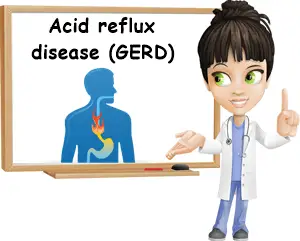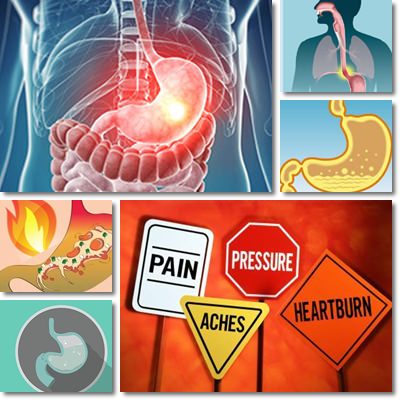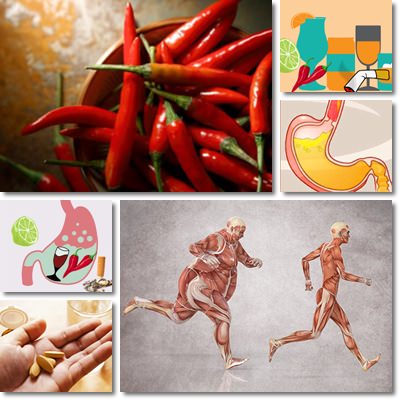So many people deal with stomach acidity and its symptoms on a daily basis and many of them may not even realize it is not normal to experience heartburn and chest pain, regurgitation, coughing or other similarly uncomfortable symptoms regularly after a meal.
While it may not appear to be a medical emergency, gastroesophageal reflux poses great health risks, producing irreparable damage to sensitive mucosas and increasing the risk of developing Barrett’s esophagus, a condition preceding esophageal cancer.
What is GERD?
Gastroesophageal reflux disease or GERD, also called acid reflux disease is a serious medical condition with long-term health effects. GERD occurs when our stomach contents composed mainly of stomach acid, bile acids, food remains etc. travel up into the esophagus and damage the tissue. LPR, laryngopharyngeal reflux, is a form of gastroesophageal reflux in which stomach acid and other stomach contents go up into the larynx (throat) where they produce similar damage to the tissue.
GERD comes with serious side effects and a great health impact so addressing its causes and finding relief should constitute a medical priority.

Gastroesophageal reflux disease refers to the repeated flow of stomach contents into the esophagus (they reflux) and constitutes a medical condition or disease proper.
The term acid reflux, which refers to the exact same symptom of stomach contents reflux, may only be an occasional reaction to bad lifestyle habits and poor dietary choices.
When acid reflux occurs frequently enough to be considered a regular symptom it becomes an indicator of GERD. In other words, if we experience acid reflux now and then and only in response to certain foods we may consume occasionally, then we don’t necessarily have GERD.
But if we experience acid reflux on a regular basis (even once or twice a week), then we stand a higher chance of having gastroesophageal reflux disease.
What causes GERD?
Gastroesophageal reflux disease can develop at any age as a result of one or more the following factors:
1) Hiatal hernia (or hiatus hernia)
Our thoracic cavity is separated from our abdominal cavity by a muscle called the diaphragm. The diaphragm allows our esophagus (food pipe) to connect with our stomach via an opening called ‘hiatus’.
A hiatal hernia occurs when part of the stomach or even part of the esophagus in the abdominal cavity pop out in the thoracic cavity. This reduce the pressure that the hiatus is normally under and allows for stomach contents to flow up into the esophagus causing acid reflux symptoms and GERD. Hiatal hernia is highly common in people with Barrett’s esophagus and esophagus inflammation.
2) Other physical abnormalities
Our esophagus closes up our stomach via a sort of ring-like muscle called lower esophageal sphincter. An abnormally loose muscular ring may not properly close after food enters the stomach, allowing for stomach contents to flow back up and causing acid reflux and GERD.
A dysfunction in esophagus motility or stomach prolapse (sinking) into the abdominal cavity, called gastroptosis, can also lead to GERD. Slow emptying of the stomach is another possible cause.

3) Vagus nerve problems
The vagus nerve is responsible for stimulating the contraction and relaxation of the muscles that help push food down into the esophagus, stomach and intestines.
Damage to the vagus nerve may contribute to motility problems and alter normal esophagus function, possibly leading to gastroesophageal reflux.
4) Increased stomach acidity
Some people’s stomach secretes more gastric acid than normal. Combined with bad lifestyle habits and poor dietary choices, increased stomach acidity can lead to acid reflux problems and damage to the esophagus over time. Find out what foods to eat and to avoid for acid reflux disease.
5) Excess weight and obesity
It has been suggested that being overweight and obese may play a role in gastroesophageal reflux as well as worsen existing GERD symptoms, possibly because weight gain is favored by the consumption of fatty and overall unhealthy, processed foods which directly cause acid reflux, heartburn and other symptoms.
Moreover, being overweight puts more pressure on the stomach and can encourage acid reflux and heartburn. Maintaining a healthy weight is essential for gastrointestinal health. Find out more about gastroesophageal reflux disease treatment.
6) Prednisolone and other medication
Prednisolone is an anti-inflammatory and immunosupressant used to treat allergic reactions, asthma, autoimmune disorders, skin conditions, endocrine problems, even cancer and transplant rejection.
Prednisolone lists many side effects, including nausea and vomiting, upset stomach, muscle weakness, acid reflux and gastric ulcers.
Other medication that can lead to gastroesophageal reflux: ibuprofen and other anti-inflammatory medication, aspirin, high blood pressure medication, muscle relaxants, antibiotics, some asthma medication etc.
Virtually any medication taken in excess or for long periods of time can erode the stomach mucosa, increase acidity and cause acid reflux, heartburn and other symptoms.
7) Hypercalcemia
Hypercalcemia refers to high calcium blood levels and is encouraged by various dysfunctions and diseases such as kidney problems and kidney failure, vitamin disorders, hyperthyroidism, some forms of cancer etc.
Hypercalcemia contributes to increased production of gastrin, a hormone that regulates the production of gastric acid and may result in increased stomach acidity, acid reflux, heartburn and GERD.
8) Alcohol and carbonated soft drinks
Alcohol not only dehydrates, but also irritates the sensitive esophageal and stomach mucosas, irritating them and leading to GERD symptoms such as reflux, heartburn etc.
Carbonated beverages (soft drinks, soda drinks) have a less pronounced, but similar effect and can trigger GERD as well as worsen existing symptoms. Whenever I drank carbonated drinks and even carbonated water I noticed my stomach acidity worsened visibly and I often experienced bloating, burping and acid reflux.
9) Smoking
One of the worst things we can do to ourselves is smoke. As popular as this pastime may be, it is incredibly unhealthy both for first-hand smokers and those around them.
Smokers often experience dry mouth and dry throat, a burning sensation in the chest area (heartburn) and a decrease in lower esophageal sphincter pressure (the muscle that closes up the stomach so that stomach contents don’t flow back up into the esophagus).
Research has also found that smoking increases GERD symptoms frequency, worsening the condition (Mechanisms of acid reflux associated with cigarette smoking. P. J. Kahrilas and R. R. Gupta).
10) Pregnancy
Hormonal changes during pregnancy can encourage the muscular ring in the lower part of the esophagus to relax and not close up the junction with the stomach, allowing stomach contents to flow back to the esophagus.
Moreover, in the more advanced stages of pregnancy, the growing baby bump puts pressure on the internal organs, pushing the stomach upwards and encouraging gastric and bile acids to rise into the esophagus.

Other GERD triggers
The following factors may not cause gastroesophageal reflux disease directly and immediately, but may cause acid reflux as an independent, occasional symptom and favor the development of the disease over time:
1) Coffee, green tea and other caffeinated beverages
Coffee, caffeinated beverages and herbal infusions made from green tea leaves (green tea, black tea and white tea) all contain caffeine and may irritate the stomach and cause acidity.
Theobromine, a compound in cocoa beans, tea leaves and kola (cola) nut, is believed to suppress the activity of the vagus nerve, possibly altering esophagus muscles motility and encouraging acid reflux and heartburn.
Like many of you, I absolutely love coffee, but had to give it up completely because even a small cup of cappuccino would give me severe belching and acid reflux. It came to the point that I would suffer from acid reflux 4-5 days after drinking one small cappuccino.
Later edit: Fortunately, after treating both my gastritis and acid reflux disease, I can now enjoy coffee in small amounts without experiencing any digestive upset whatsoever.
2) Heavy and large meals
Eating too much at once or eating heavy meals, rich in animal products and low in vegetables can encourage acid reflux, heartburn, regurgitation and other gastroesophageal reflux disease symptoms.
3) Lying down or sleeping right after eating
Lying down on the couch or in bed immediately after eating is problematic because the horizontal position of the body can lead to stomach contents flowing back into the esophagus along with gastric acids and irritating the sensitive mucosa.
It is recommended to avoid lying down for 2 to 3 hours following a meal and have dinner at least 3 hours before going to sleep.
4) Certain foods
Generally, fatty, acidic or spicy foods and beverages are harmful to the sensitive esophagus and stomach mucosas. Citrus fruits, chocolate (dark chocolate in particular), cocoa, tomatoes and tomato sauce, garlic, onions, leek, peppermint, spearmint and fermented dairy products such as hard cheeses should be avoided for a while if you are suffering from acid reflux.
I also find strawberries, cabbage and cauliflower as well as sugary foods bother me more when I am experiencing acid reflux.
Conclusion
Having gastroesophageal reflux disease is not easy. It requires a lot of effort and determination to make the necessary lifestyle and dietary changes to keep the disease under control, while dealing with difficult symptoms such as heartburn, chest and stomach pain, pressure, coughing, burping, wheezing etc. Fortunately, a good diet and natural remedies can support medication plans and help us achieve optimal gastric health.
